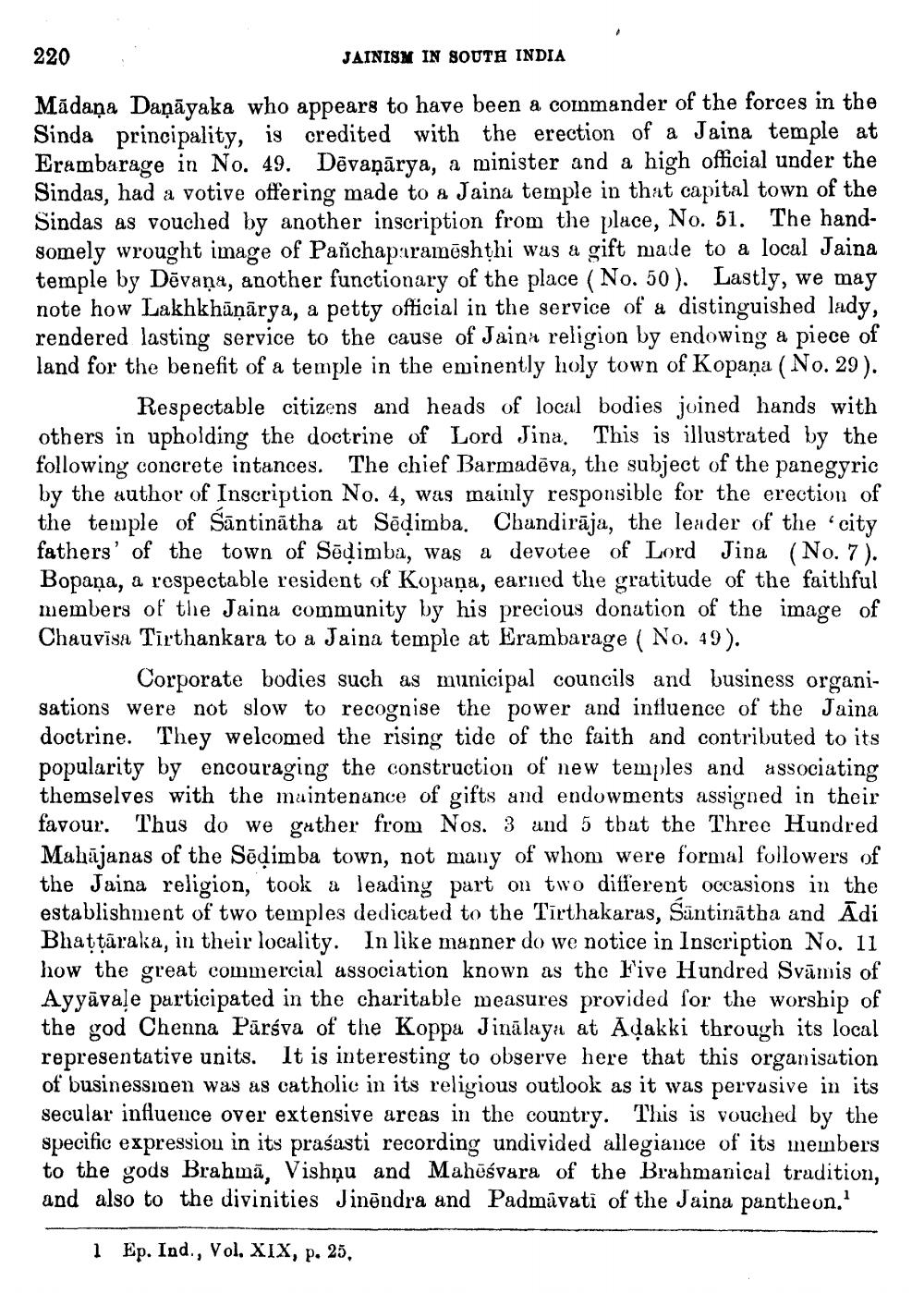________________
220
JAINISM IN SOUTH INDIA Mādaņa Daņāyaka who appears to have been a commander of the forces in the Sinda principality, is credited with the erection of a Jaina temple at Erambarage in No. 49. Dēvaņārya, a minister and a high official under the Sindas, had a votive offering made to a Jaina temple in that capital town of the Sindas as vouched by another inscription from the place, No. 51. The handsomely wrought image of Pañchapıramështhi was a gift made to a local Jaina temple by Dēvaņa, another functionary of the place (No. 50). Lastly, we may note how Lakhkhāņārya, a petty official in the service of a distinguished lady, rendered lasting service to the cause of Jaina religion by endowing a piece of land for the benefit of a temple in the eminently holy town of Kopaņa (No. 29).
Respectable citizens and heads of local bodies joined hands with others in upholding the doctrine of Lord Jina. This is illustrated by the following concrete intances. The chief Barmadēva, the subject of the panegyric by the author of Inscription No. 4, was mainly responsible for the erection of the temple of Sāntinātha at Sēļimba. Chandirāja, the leader of the city fathers' of the town of Sēờimba, was a devotee of Lord Jina (No. 7). Bopaņa, a respectable resident of Kopaņa, earned the gratitude of the faithful members of the Jaina community by his precious donation of the image of Chauvisa Tirthankara to a Jaina temple at Erambarage ( No. 49).
Corporate bodies such as municipal councils and business organisations were not slow to recognise the power and influence of the Jaina doctrine. They welcomed the rising tide of the faith and contributed to its
by encouraging the construction of new temples and associating themselves with the maintenance of gifts and endowments assigned in their favour. Thus do we gather from Nos. 3 and 5 that the Three Hundred Mahājanas of the Sēdimba town, not many of whom were formal followers of the Jaina religion, took a leading part on two different occasions in the establishment of two temples dedicated to the Tirthakaras. Säntin Bhattāraka, in their locality. In like manner do we notice in Inscription No. 11 how the great commercial association known as the Five Hundred Svāmis of Ayyāvale participated in the charitable measures provided for the worship of the god Chenna Pārsva of the Koppa Jinālaya at Adakki through its local representative units. It is interesting to observe here that this organisation of businessmen was as catholic in its religious outlook as it was pervasive in its secular influence over extensive areas in the country. This is vouched by the specific expressiou in its prasasti recording undivided allegiance of its members to the gods Brahmā, Vishņu and Mahāśvara of the Brahmanicul tradition, and also to the divinities Jinēndra and Padmavati of the Jaina pantheon.'
1 Ep. Ind., Vol. XIX, p. 25,
popul




